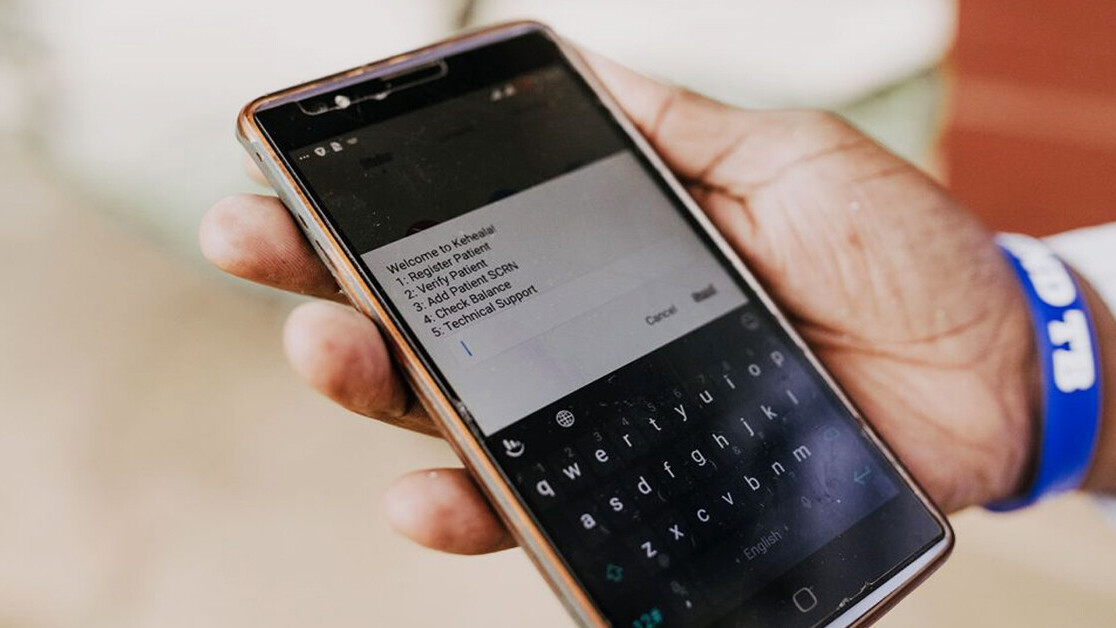
The stigma and adhering to a treatment regime are key reasons this extremely infectious disease is still a risk.
According to the WHO, to beat TB, a patient must take four antimicrobial drugs for at least six months. But health officials across the globe say that without supervision and support, many TB patients will not finish their medications.
“Non-medical drivers of disease such as stigma, access to care challenges, burdensome treatment protocols, and a lack of information, motivation, and support make it difficult for patients to do the right thing and take their medication,” said Jon Rathauser, CEO and founder of Israeli digital health startup Keheala, in a statement on Thursday.
Keheala, a Tel Aviv-based startup with offices in Nairobi, Kenya is on a mission to improve healthcare access and treatment outcomes for patients.
First founded in 2014, Keheala developed a “low-tech” solution to help motivate treatment adherence and get patients to take their medications on time, using basic phone features – like SMS or text – and behavioral science strategies for a platform based on USSD – unstructured supplementary service data.
“This means patients can dial in (*694# in Kenya) and text Keheala,” Rathauser tells NoCamels. Shortcodes are available on 99 percent of basic feature phones. The platform securely delivers reminders, disease information and enable self-verification of treatment, simplifying and informing the process of care.
Here’s how it works: The program sends text messages to patients to take their meds on time. If the patient takes his meds, he sends a text back saying so and will get another message of thanks. If he doesn’t respond, more text messages are sent, followed by phone calls from Keheala supporters to verify adherence.
“They can receive a ‘push’ via SMS with reminders to take their meds, and they can self-verify that they took it, as well as connect with supporters and mentors,” says Rathauser, who is originally from New Jersey and holds public health and business degrees from McGill University and the Technion Institute. For example, if the system recognizes that there has been no activity or ‘check-in,’ “a mentor can initiate a text conversation and ask how the person is doing and if they need anything.”
In this way, explains Dr. Erez Yoeli, a social scientist at MIT who helped to design the startup’s interventions, Keheala uses two key behavioral principles to change patient behavior: both “increased observability” of patients and “eliminating plausible deniability,” that is, denying patients the opportunity to make excuses for missed treatments.
Keheala is not the first team to try and combat TB via reminders. It is the first to make use of a two-way system that bundles in best practices from the social sciences, whereby the patient had to actively verify that he or she followed the treatment regime.
“We use behavioral psychology to encourage people to take their medication so they take care of themselves and their communities,” says Rathauser.
Indeed, Keheala also sends text messages to remind the patients that in taking their medications, they are keeping safe their families and friends. The name of the company and platform, by no coincidence, is the Hebrew word for “community.”
The company’s slogan is “healing within the community” – “literal in the English spelling (Ke-heal-a) and figurative for the community engagement approach utilized to increase treatment adherence,” according to its website.
On Thursday, Keheala revealed the findings of a new study conducted in collaboration with MIT researchers, which showed that their system worked quite well.
In a 1,200-patient randomized controlled trial at 17 clinical sites in Kenya, 96 percent of the patients achieved successful outcomes, Keheala says.
The results of that 2016 study were published on Thursday in a paper titled “Digital Health Support in Treatment for Tuberculosis,” in the New England Journal of Medicine.

The NEJM paper is co-authored by Yoeli, Rathauser, David Rand, an associate professor in the MIT Sloan School of Management; Syon P. Bhanot, an assistant professor of economics at Swarthmore College; Maureen K. Kimenye and Eunice Mailu of the Kenya Ministry of Health; Enos Masini of the World Health Organization; and Philip Owiti of the International Union Against Tuberculosis and Lung Disease. The research was supported by The Development Innovation Ventures Fund of the United States Agency for International Development (USAID).
“Patients who we supported with our mobile platform were two-thirds less likely to fail to complete treatment,” Yoeli said in the statement announcing the study.
According to Rand, “nonadherence with treatment regimes is a major problem in medicine that leads to serious negative health outcomes. But critically, the challenge is not medical — it’s behavioral.”
Community healing
Tuberculosis is caused by bacteria and is spread through the air. According to the WHO, when a person with TB coughs, sneezes or spits, TB germs are boosted into the air and can infect anyone who inhales them.
Rathauser explains that the system had to be as low-tech as possible so as to have a wide reach.

“We focus on the developing world and emerging markets, so it’s not an app because for that you’d need a smartphone and not everyone has one. Eight out of 10 people in Africa have a mobile but it isn’t necessarily a smartphone,” he tells NoCamels. “We’re also looking to serve a less literate population.”
The behavioral science and tech behind it aren’t as simple.
“Solving some of the world’s greatest health challenges requires a deeper understanding of people. Behavioral insights coupled with accessible technologies enable us to tailor delivery models to patient needs, thereby increasing uptake and effectiveness. Investing in patient-centered solutions can maximize the impact of global health programs,” Rathauser explained in a company statement.
Currently, Keheala engages some 16,000 people affected with TB in Kenya, and another 4,000 in Zimbabwe, where the team also works with people with drinking and smoking behaviors as well.
The near future plan for Keheala is to serve people suffering from TB as well as HIV, diabetes and cardiovascular disease.
Rathauser says his team is “looking to work in other countries and expand products with a focus on adherence, differentiated care, and tailored intervention” – all using machine-leaning-backed predictive analytics.
This story was originally published by NoCamels, a news website covering the latest innovations coming out of Israel. You can read here the original story.
Get the TNW newsletter
Get the most important tech news in your inbox each week.





